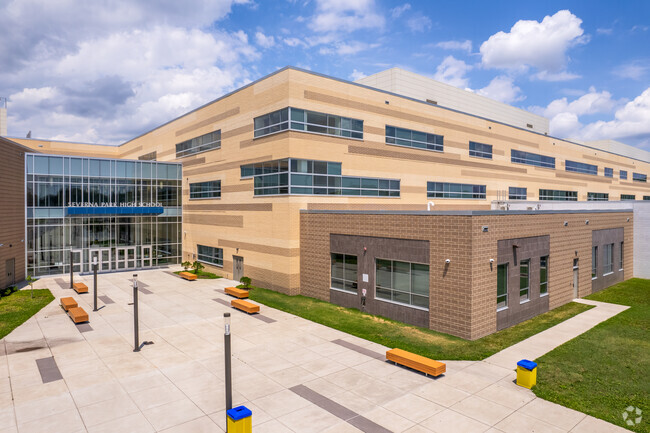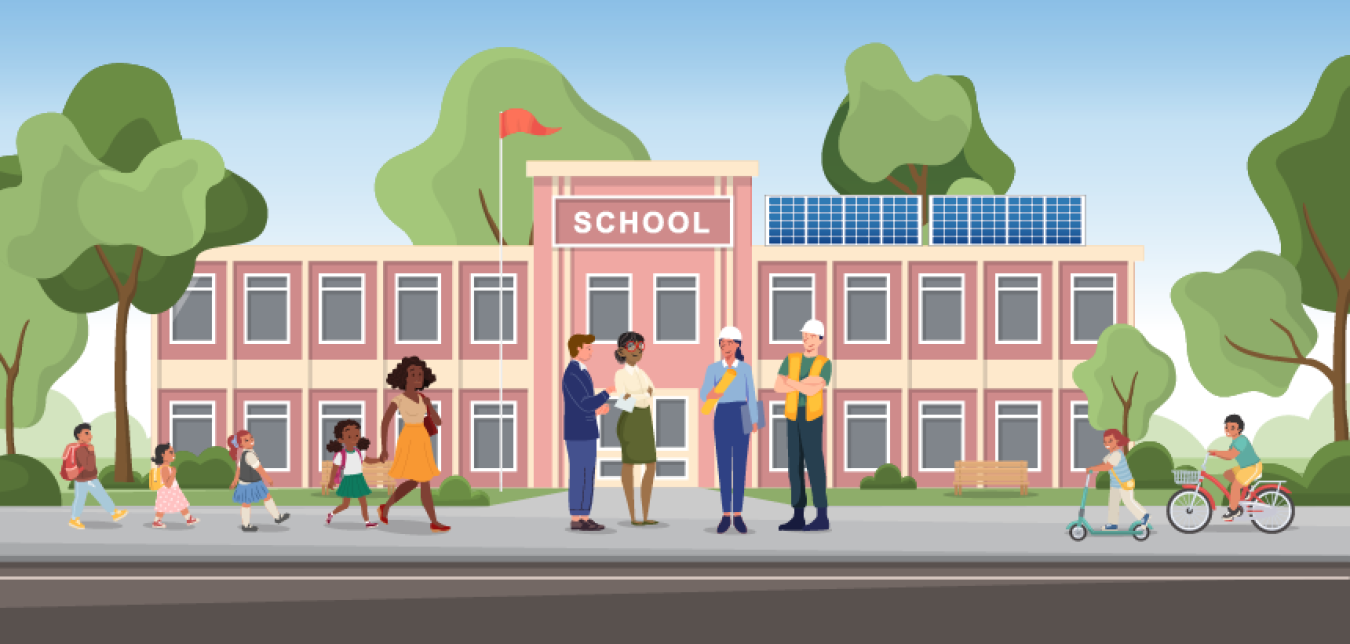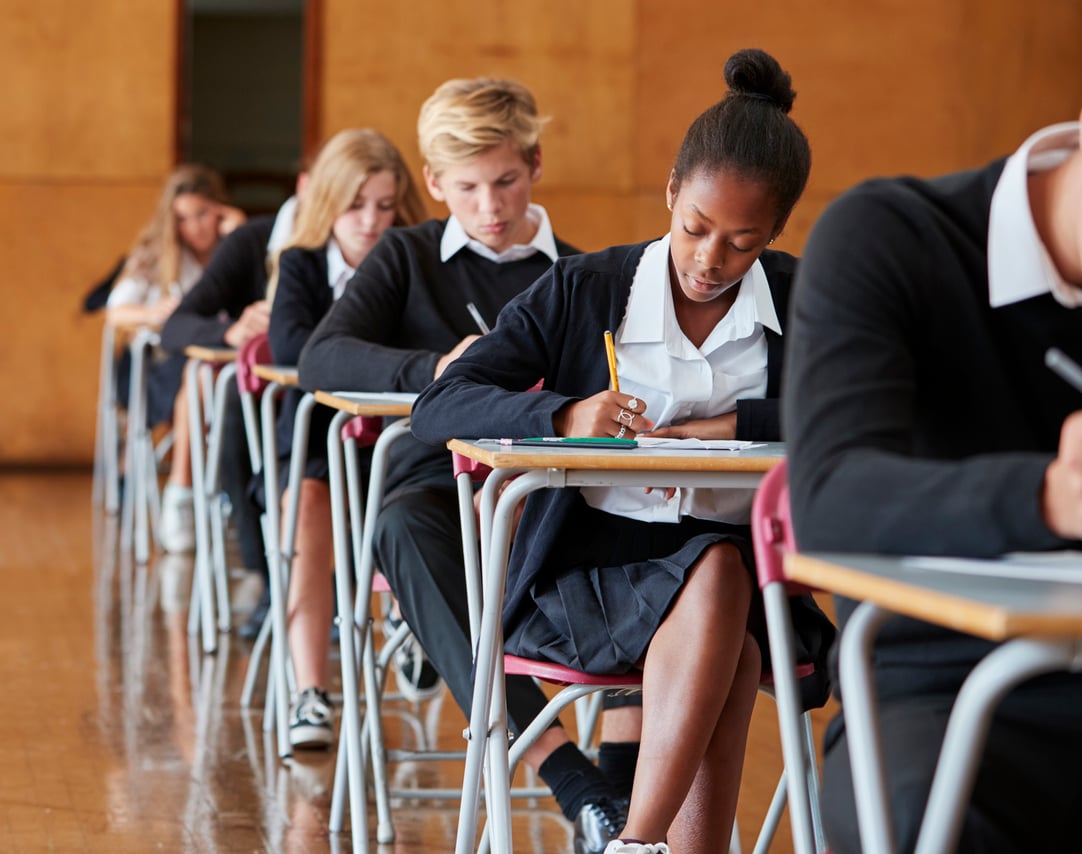The Effect of Institution Environments on Academic Success and Personal Wellness
The institution environment considerably affects both scholastic success and personal health, encompassing aspects such as physical layout, class ambience, and interpersonal characteristics. The style of academic spaces, consisting of natural lights and ergonomic furnishings, can improve trainees' focus and convenience. Furthermore, the high quality of teacher-student connections and the nature of peer communications play essential roles in promoting an environment for discovering and psychological assistance. Understanding how these numerous aspects interaction to shape student end results raises essential questions about enhancing educational settings for alternative growth. How can institutions purposefully boost these facets to much better support their pupils?
Physical Layout and Layout
Exactly how does the physical layout and style of a college impact scholastic success? The plan and visual of a college environment can significantly affect pupils' learning outcomes. A properly designed institution format advertises ease of movement, decreases interruptions, and cultivates a sense of safety and security and belonging. For example, broad corridors and plainly significant locations assist in smooth changes in between courses, reducing lateness and disturbance. Additionally, strategically put typical areas urge social interactions, which are crucial for social and psychological development.
Natural illumination and reliable air flow systems are critical in enhancing cognitive feature and decreasing absence. Research studies have shown that classrooms with ample all-natural light boost trainee concentration and lower feelings of drowsiness. Ergonomic furnishings tailored to trainees' requirements can stop physical pain, allowing for long term emphasis and engagement in scholastic activities.
Access to outdoor spaces and cosmetically pleasing surroundings additionally play an essential role - Save Temecula Schools. Eco-friendly spaces and properly maintained school premises provide possibilities for exercise and psychological relaxation, both of which are very important for preserving high degrees of academic performance. In significance, an attentively made physical atmosphere can function as a catalyst for academic quality, fostering an environment that sustains both teaching and learning
Classroom Ambience
A setting that promotes a sense of security, inclusivity, and mutual regard encourages trainees to involve even more actively in their learning processes. The atmosphere of a class, including facets such as lights, noise degrees, and seating plans, can dramatically impact student focus and motivation.
Furthermore, the class atmosphere ought to sustain a society of partnership and open interaction. They are more likely to involve deeply with the product and develop critical believing abilities when pupils really feel comfy expressing their concepts and asking questions. Peer communications and team activities can improve learning by supplying varied perspectives and fostering team effort
In addition, establishing regular routines and clear expectations can create an organized environment that allows students to concentrate on their researches. By lessening uncertainty and providing a foreseeable structure, pupils can much better manage their time and duties. Eventually, a positive class environment not just enhances academic efficiency yet additionally adds to the overall well-being of pupils, preparing them for future academic and personal endeavors.
Teacher-Student Relationships
Building on the significance of a positive class atmosphere, the connections between students and teachers play a crucial function in forming scholastic success. A healthy and balanced teacher-student connection promotes a finding out atmosphere where trainees really feel valued, recognized, and sustained, which dramatically improves their inspiration and interaction. When trainees regard their teachers as understanding and approachable, they are much more most likely to participate proactively in class and seek aid when required, contributing to a much deeper understanding of the topic.

Efficient interaction is key to supporting these partnerships. Teachers that employ open, respectful, and constant communication develop a structure of count on. This count on allows pupils to express their problems and ideas openly, promoting a collective understanding setting. Basically, strong teacher-student partnerships are a foundation of instructional success, playing a crucial function in both academic achievement and individual development.
Peer Interactions
Peer communications dramatically influence academic success by shaping a trainee's social and cognitive development. Within the school atmosphere, peer connections act as a foundational part for learning and individual growth. Favorable peer communications can enhance a student's inspiration and involvement in academic tasks with collaborative learning and mutual assistance. When students interact in group setups, they exchange ideas, fix troubles jointly, and create important assuming abilities. Such communications promote a feeling of belonging and community, which is vital for psychological wellness and academic willpower.

Reliable peer communications additionally add to the growth of vital life skills, such as participation, communication, and dispute resolution. These social proficiencies are critical for both scholastic success and individual wellness, highlighting the relevance of fostering positive peer dynamics within the school setting.
After-school Activities
Involving in after-school activities plays a critical role in a student's academic success and personal growth. These activities, ranging from sporting activities groups to question clubs, use students possibilities to see this page refine valuable skills such as leadership, time administration, and team effort. Research constantly suggests that trainees that join after-school activities have a tendency to accomplish higher scholastic performance. This relationship is frequently connected to the structured atmosphere and the technique called for to balance both extracurricular and scholastic commitments.
Furthermore, extracurricular involvement fosters a sense of belonging and neighborhood, which is important for individual well-being. Joining group activities allows students to build and enhance social media networks, boosting their emotional and social intelligence. These interactions are critical for creating interpersonal skills that are beneficial in both academic why not find out more and future professional settings.
In addition, after-school activities give a useful electrical outlet for pupils to discover their rate of interests and passions beyond the common curriculum. This exploration can result in the exploration of new talents and possible profession courses, further motivating students to engage even more deeply in their academic work. To conclude, the duty of after-school activities expands beyond simple recreation; they are essential to promoting a holistic educational experience that advertises both scholastic success and personal growth.
Verdict
Thoughtfully created physical layouts and class, along with positive teacher-student partnerships and constructive peer interactions, substantially improve pupil motivation and involvement. These components jointly emphasize the importance of developing and preserving ideal institution settings for the advantage of trainees' individual and scholastic development.
Inevitably, a favorable class ambience not only boosts scholastic efficiency but also contributes to the general wellness of pupils, preparing them for future educational and individual endeavors.

Comments on “Discover the Perks of Advocacy: Save Temecula Schools”